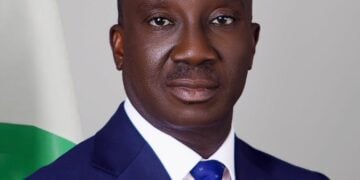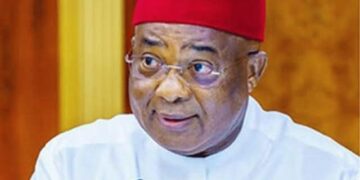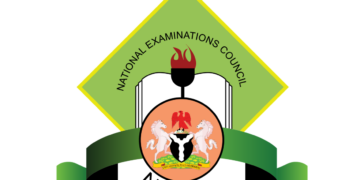In a bold call to action, chief executive of Connected Development and an International Inequality Champion, Hamza Lawal has decried Nigeria’s slow access to global climate financing.
Speaking during the unveiling of a new report spotlighting inequality and climate challenges held in Abuja, Lawal revealed that Nigeria has only accessed 7% of the $100 billion annually pledged under the Paris Agreement for climate mitigation and adaptation.
“While significant resources are channeled toward mitigation and adaptation, resilience remains largely neglected,” Lawal noted.
He emphasized the need to prioritize resilient agricultural systems, housing, and financial frameworks to build a climate-resistant Nigeria.
“By investing heavily in resilience, we can bypass many challenges of adaptation and mitigation,” he added.
Lawal also highlighted the stark inequality in Nigeria, where 1% of the population controls the wealth of West Africa, leaving many Nigerians without access to essential services like healthcare, education, and social infrastructure.
He urged the government to explore new tax regimes, such as inheritance taxes, to address these disparities and strengthen Nigeria’s financial base for equitable development.
Henry Uchie of Oxfam shed light on the deep-seated inequality rooted in colonial legacies and resource exploitation.
He pointed out the lopsided flow of extractive resources from the global South to the global North, which perpetuates poverty in Africa.
“The report seeks to reverse this trend by encouraging African nations to mobilize resources that benefit local economies instead of fueling industrial growth in the global North,” Uchie said.
He also called for increased investment in rural electrification, agriculture, education, and healthcare, noting that these sectors are pivotal to reducing inequality and stabilizing migration trends within Africa.
Lead Researcher at Connected Development, Dr. Augustine Okere underscored the importance of budget targeting and tracking in addressing climate challenges.
He urged governments to allocate and monitor climate-focused budgets effectively to attract international funding and enhance domestic impact.
“Budget tracking ensures resources are directed to critical areas like climate risk mitigation, adaptation, and resilience,” Okere explained.
He called for policies that go beyond rhetoric, ensuring actual allocation and disbursement to vital sectors like agriculture and education.
All three experts emphasized the critical role of civil society in ensuring transparency and accountability in resource utilization.










